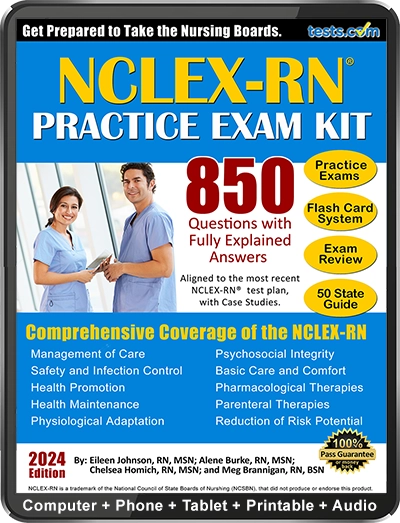Nursing Bundle Practice Test
2025 Edition
Take this free nursing practice test to see what types of questions are on nursing exams. It includes nusing assistant, TEAS VI, NCLEX-RN, CCRN, CEN and CHPN practice questions.

2025 Edition
Take this free nursing practice test to see what types of questions are on nursing exams. It includes nusing assistant, TEAS VI, NCLEX-RN, CCRN, CEN and CHPN practice questions.
